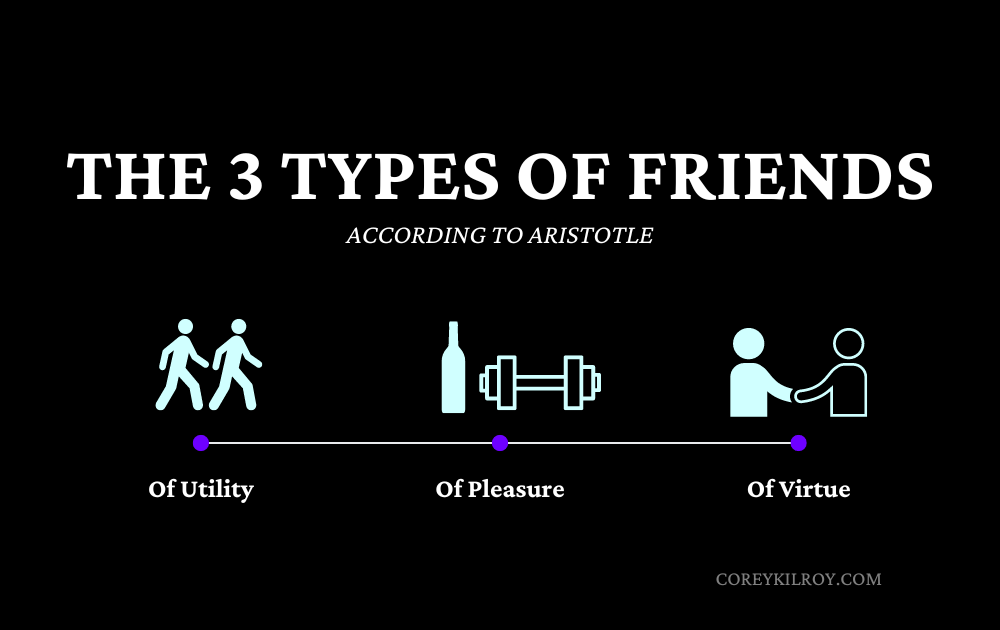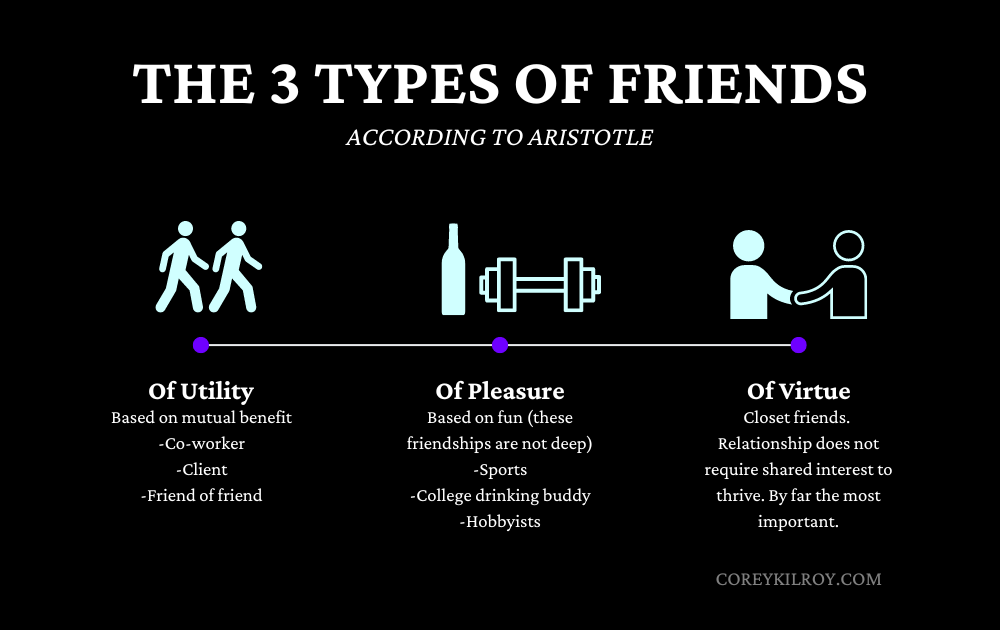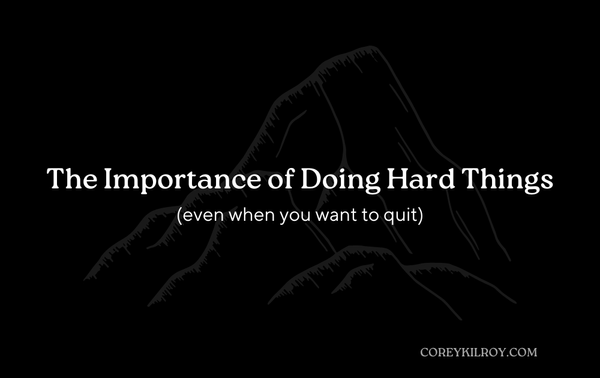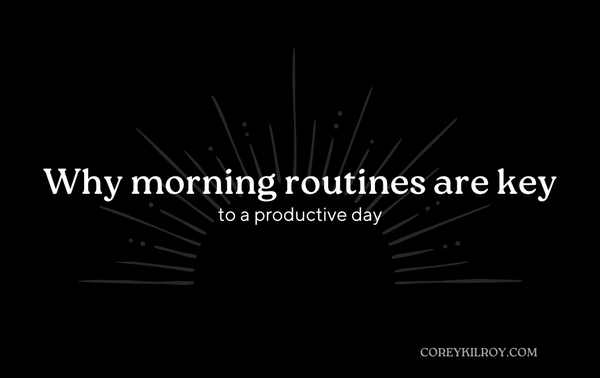Aristotle on the Three Kinds of Friends

Ever since I was a child, I’ve always been a very observant person.
I’d much rather sit back and analyze a person or situation compared to being an outgoing person.
Because of this, however, I’ve always struggled to make friends but I knew that the friends I did make could always be categorized into different “buckets”.
I just didn’t know what…
Lo and behold, I recently stumbled upon an ancient Greek philosopher, Aristotle, whose categories of three different kinds of friends confirmed my everlasting suspicion.

Aristotle says there are three kinds of friends:
1. Friends that benefit you
2. Friends that please you, and
3. Friends that make you better (aka the ‘perfect’ friend)
Let’s dive a little deeper, shall we?
Why do we need friends?
Many, many factors contribute to a person’s happiness in life.
For one, I’ve always preached the importance of working on our “purpose” in life–doing the things that light our soul on fire every time we do it, or when we even think about it.
Secondly, as humans, we are a social species. So our relationships and friendships in life play another major role in our happiness.
Being able to experience the joys of life with loved ones by our side brings a virtue of life that is irreplaceable.
Aristotle seemed to agree and spent the majority of his time studying relationships and their importance in life.
In fact, in his Nicomachean Ethics, Aristotle writes that “without a friend, no one would want to live, even if possessing all goods.”
I mean, truly… would you want to live without a friend?
Many are lonely and depressed today, especially due to the increased use of social media, and no doubt those who are friendless are among the most vulnerable among us.
Nonetheless, it goes to show just how important relationships and friendships are and the different roles they play in our lives.
Let’s start with the first type, as described by Sir Aristotle.
The Three Types of Friendships
1. The friendship of utility.
These friendships are based on what someone can do for you, or what you can do for another person.
No pun intended, but this first level of friendship sounds quite utilitarian, doesn’t it?
In all honesty, we want these kinds of friends because they’re useful to us. Because we can use them to get what we want.
Everyone in this world is ultimately concerned with their own well-being in life and it can be thought of in a few different ways.
For one, if you care about your networking possibilities and the prestige that comes with a certain organization, then you may consider going to Harvard or Princeton for your studies. You’ll make friends with other connected people and all will go well for you.
Alternatively, it could be as simple as having a good friend who owns season tickets to your favorite sports team. At least once a year you get offered tickets from this friend and you get to take a buddy or family member along with you.
You love the fact you get to see your favorite team each year and your friend also seems to enjoy sharing them with you.
This is a prime example of mutualism and if both parties are aware of the circumstances, then there’s no harm in the friendship.
However, such relationships have little to do with character and can end as soon as any possible use for you or the other person is removed from the equation.
2. The friendship of pleasure.
This level consists of those friends who please us (whether they are useful or not).
These are friendships based on the enjoyment of a shared activity or the pursuit of fleeting pleasures and emotions.
This kind of friendship may be a funny friend full of clever and humorous observations.
They could also be a great storyteller or be entertaining in other ways, like a great musician, martial artist, athlete, etc.
They could also be a friend that you go for drinks with, or join a particular hobby with, and is a common level of association among the young, as determined by Aristotle.
Again, these friendships are not necessarily bad and honestly can bring a sense of relief, laughter, and relaxation to our lives.
And also yes, these pleasing friendships can be the class clown as well, but can also be a poet, painter, or chef that can bring knowledge and even inspiring pleasures to our lives.
Any way you put it, this type of relationship can also end quickly, depending on people’s ever-changing likes and dislikes.
3. The friendship of virtue (the ‘perfect’ friend).
Unsurprisingly, Aristotle highly praised these types of friendships, and for good reason!
These are the friends that you like for themselves, who typically influence you positively and push you to be a better person.
You may start with a friend from level 2, both mutually going to the gym together 3-4 days a week, for example.
But a few months later, you may end up admiring something you see in their character that draws you both closer.
Maybe it’s their dedication, discipline, and work ethic. You notice the way they practice, enhance technique, and hone their skills.
Simply the example of this friend draws you to become intellectually closer to this person.
Down the line, this person becomes a genuine friend who pushes you to become a better person and someone you may even consider family.
It’s important to know that these friendships do not happen overnight and may take many years to establish.
But this type of friendship is well worth the time and effort needed to establish it and is a lot more stable than the previous two levels.
In the end…
While friendships of utility and pleasure have their place in life, it’s the rare and pure friendships of virtue that are the greatest contributors to a good and happy life.
Aristotle words it perfectly:
“Perfect friendship is the friendship of men who are good, and alike in virtue; for these wish well alike to each other qua good, and they are good in themselves. Now those who wish well to their friends for their sake are most truly friends; for they do this by reason of their own nature and not incidentally; therefore their friendship lasts as long as they are good–and goodness is an enduring thing.” (V.iii)
When it comes to happiness in life, work on your purpose and then ask yourself a couple of questions…
Do you have some “perfect friends”?
Does your family, school, job, or environment intentionally promote and model such friendship?
How can you put yourself in an environment that promotes the growth of such friendships?
We are ultimately the result of the environment we put ourselves in and the people we surround ourselves with.
Don’t ever take that lightly.
Be well and Keep Pluggin.
-C.



